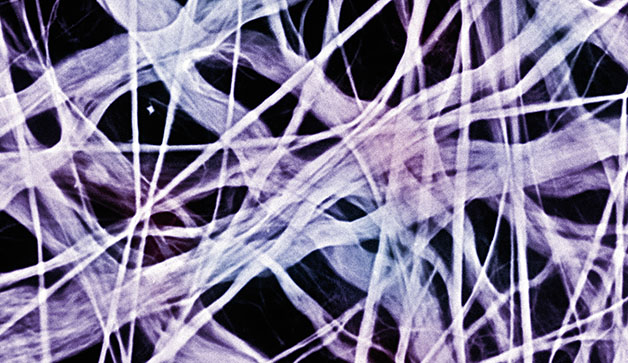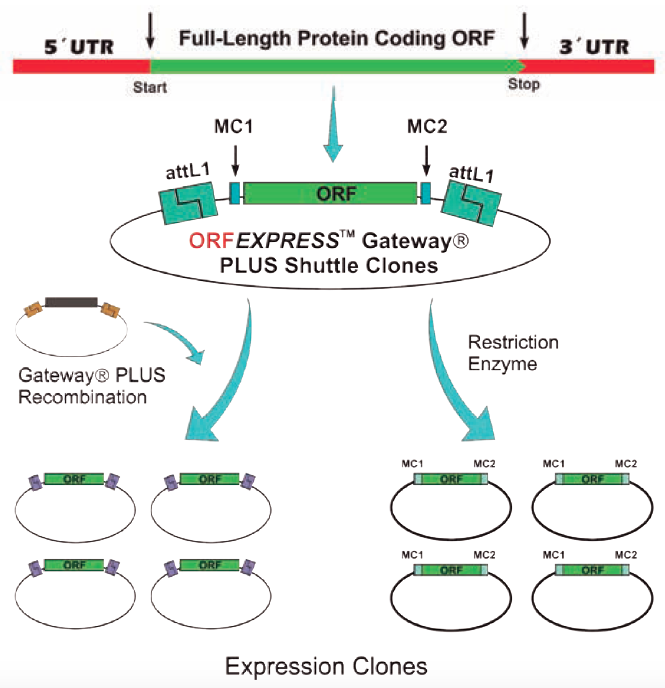The monitoring of ECM components during experimental approaches requires robust and user-friendly in vitro assays. In the past experimental methods (e.g. soluble collagen measurement) were laborious and based on the use of harmful chemicals. Today, easy-to-use and straightforward methods with colorimetric read-outs are used daily.
Matrix components are key R&D elements in pharmaceutical research and cosmetology with tremendous impacts on tissue regeneration, skin repair, wound healing, allergy and inflammation, surgery, ageing diseases…
Collagen, Elastin, and Proteoglycans are major components of the Extracellular Matrix (ECM) where they form highly complex networks. ECM builds up an environment which supports surrounding cells and plays a crucial role in cell-to-cell communication, cell adhesion, and differentiation.
Sircol family of collagen assays
Biocolor offers a broad range of colorimetric kits to measure components of the extracellular matrix (Elastin, Glycosaminoglycans and Proteoglycans, and Hyaluronic acid). Today, I will focus on their Sircol family of Collagen Assays.
Sircol assay to measure soluble collagen

The standard Sircol Assay is a quantitative dye-binding method designed for the analysis of Acid-Soluble Collagen (ASC) and Pepsin-Soluble Collagen (PSC) by absorbance readings within the range 520-570 nm. It is suitable for monitoring collagen produced in situ or during in-vitro cell culture and in-vitro extracellular matrix, (ECM), formation:
in vivo
- Collagen, soluble in cold acid or pepsin, recovered from mammalian soft tissues, cartilages and fluids.
in vitro
- Collagen, soluble in cold acid or pepsin, released into cell culture medium during cell growth and cell maintenance.
- Collagen, soluble in cold acid or pepsin, recovered from newly formed extracellular matrix that has been deposited onto cell culture treated plastic surfaces, (T-flasks and microwell plates).
The assay is based on the Sircol Dye (Sirius Red, Fig 1) which carries sulfonic acid side chain groups which react with side chain groups of the side chain present in collagen. The affinity of the dye for collagen is due to the elongated dye molecules becoming aligned parallel to the long rigid structure of native collagen.
Sircol assay to measure insoluble collagen
During periods of rapid growth, development, tissue repair remodeling and wound healing, insoluble collagen fibers are laid down. Until now, an investigator seeking to measure covalent cross linked insoluble collagen required measurements based on free hydroxyproline content, a procedure that requires strong acid (6.0 M HCl), high temperatures (+ 950 C) and overnight cooking (18 to 24 hours).
To avoid working with concentrated acids and wasting time, Biocolor have developed a new assay (based on the Sircol soluble collagen assay) which can measure the insoluble collagen fraction in biological samples.
Prior to the Sircol dye based measurement of collagen, the Sircol Insoluble Collagen Assay uses mild acid and temperature treatment for 2 to 3 hours to denature insoluble collagen fibers and make them measurable with the Sircol dye. With this kit the solubility conversion to denatured collagen and subsequent measurement can be completed within one working day.

Combining both assays
To choose the right assay for your collagen source, take a look at Fig. 2. By applying both assays, the Sircol Collagen assay and the Sircol insoluble Collagen Assay, even three collagen fractions can be differentiated:
- Collagen soluble in cold dilute acid
- Collagen soluble in cold dilute acid and pepsin
- Insoluble collagen
Of course, by adding the results together a value for the “Total Collagen” in a sample can be established.
Interested in using one or both of the Sircol assays or getting our lab to measure collagen for you? Leave your request or comments below!

Interested in learning more about tools like this?
Subscribe to thematic newsletters on your favourite research topics.




4 responses
Hi,
we are interested in these assays.
How and where can I purchase it?
Please supply contact details?
Dear Lydia,
Thank you for reading our blog.
Our contact details in the UK are the following: http://www.tebu-bio.com/cms/1062/.html
I have asked my colleagues from our UK office to contact you for further assistance.
Best regards,
Philippe
Hello,
I am a research student and interested in using soluble and insoluble collagen assay kits for my research. I would like to know more about the kit.
Dear Nicholas,
Thank you for your message on our blog.
My colleagues from our UK office will get back to you shortly with more information on our SIRCOL collagen kits.
Wishing you a very good day!
Kind regards,
Isabelle